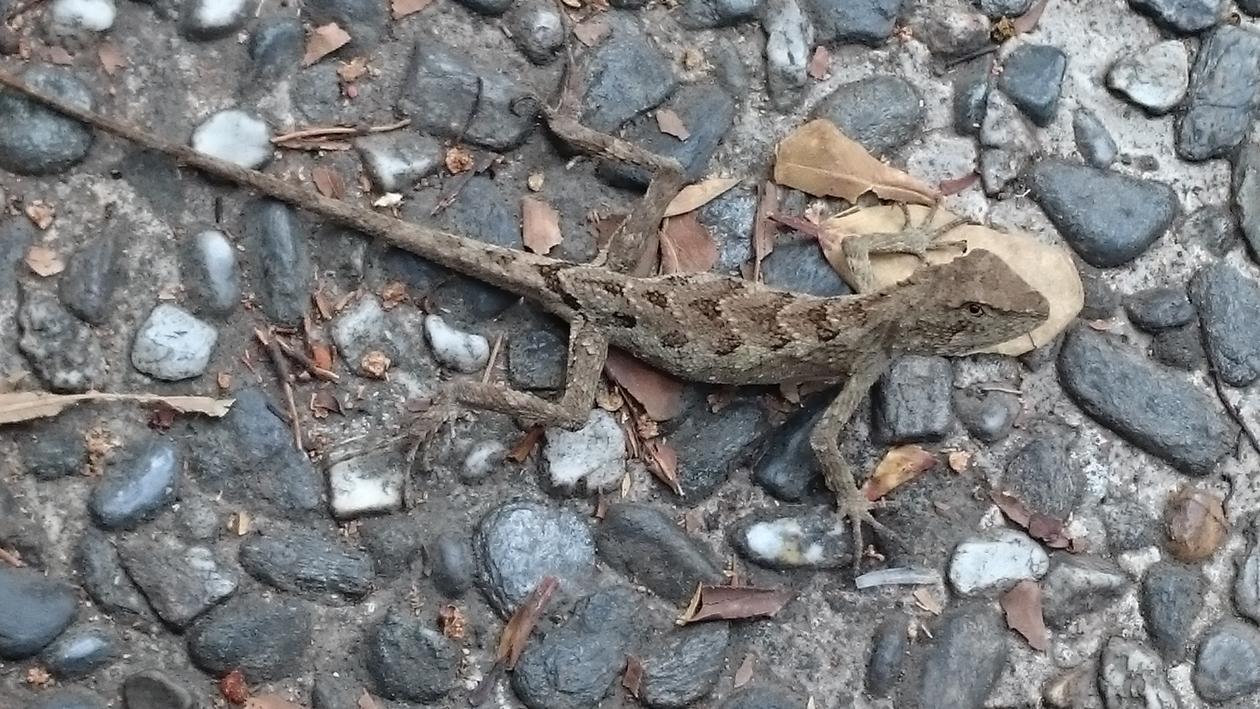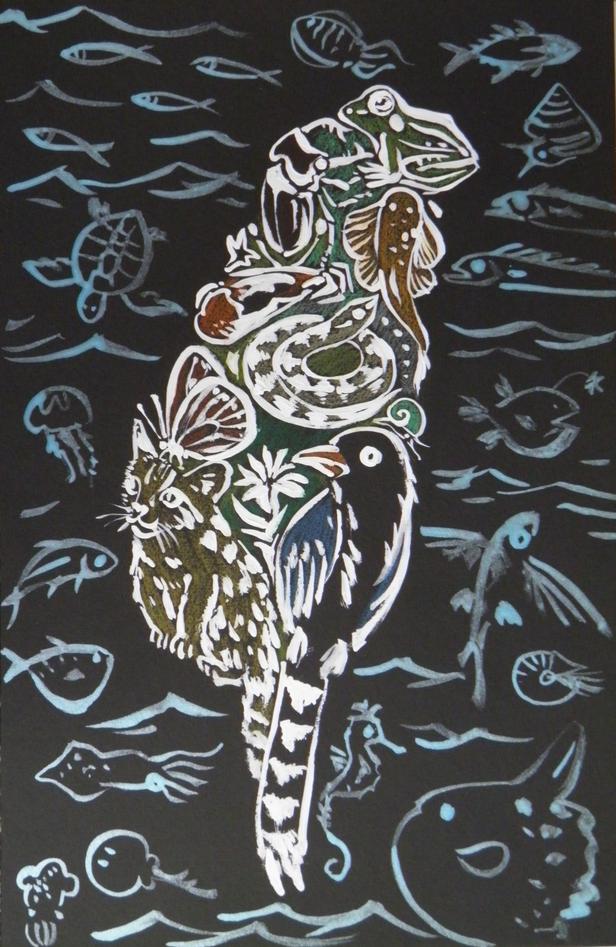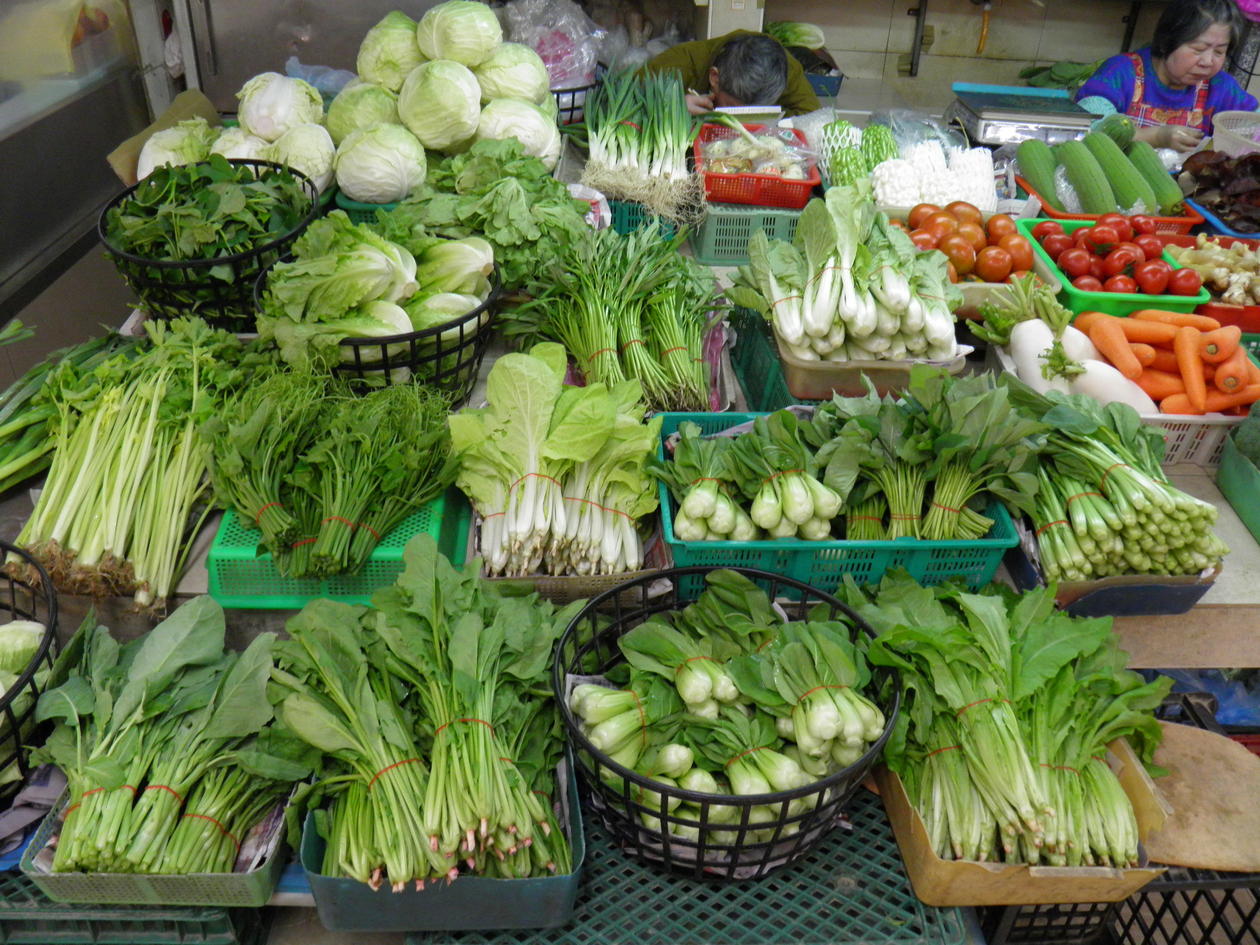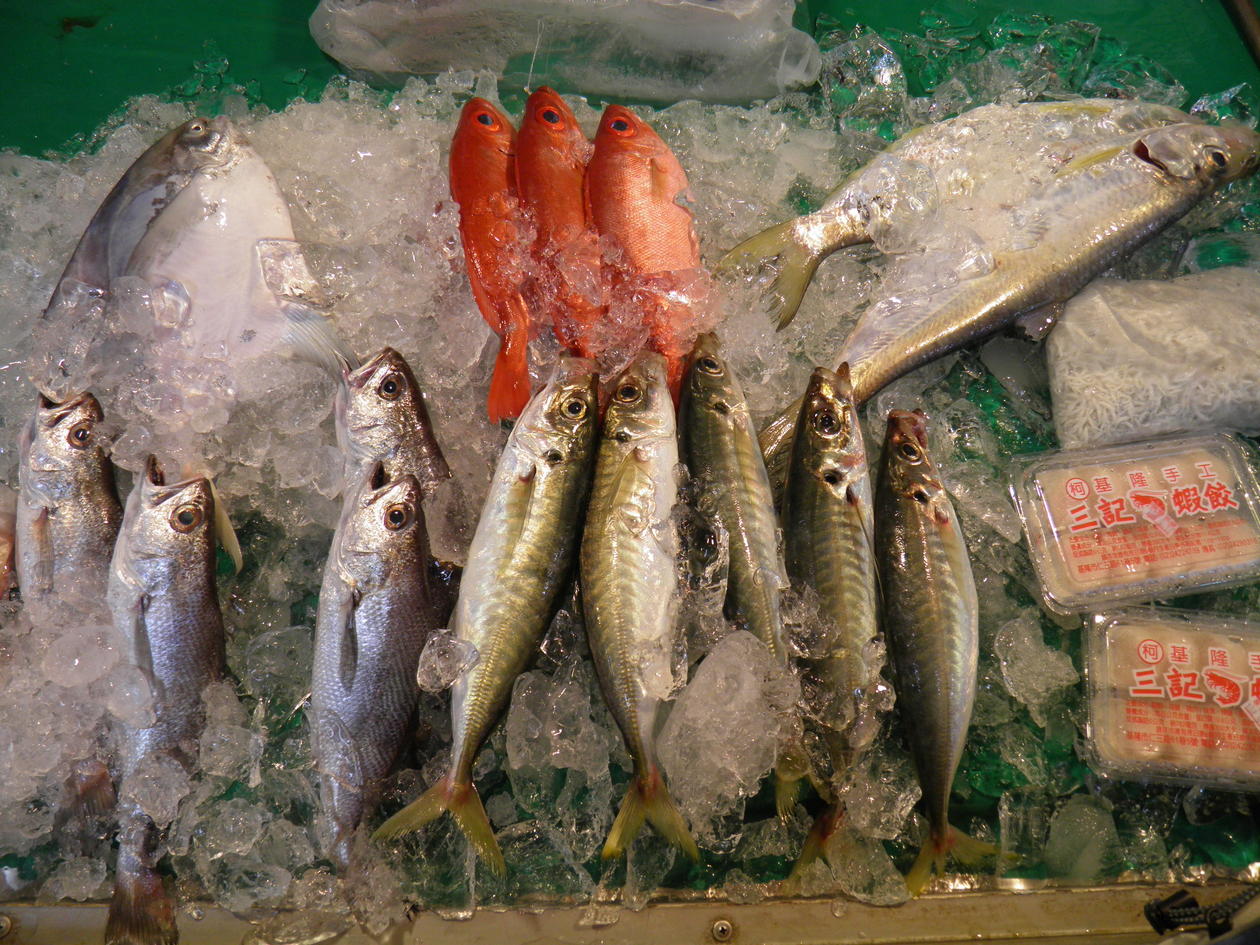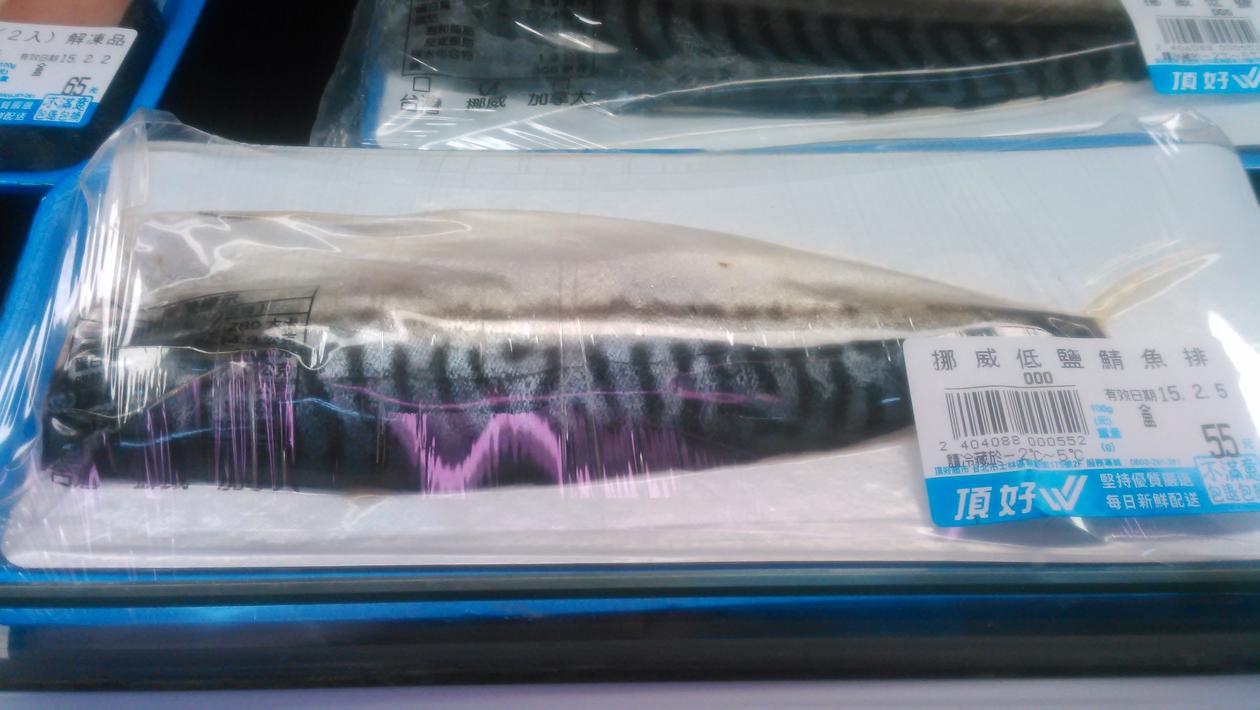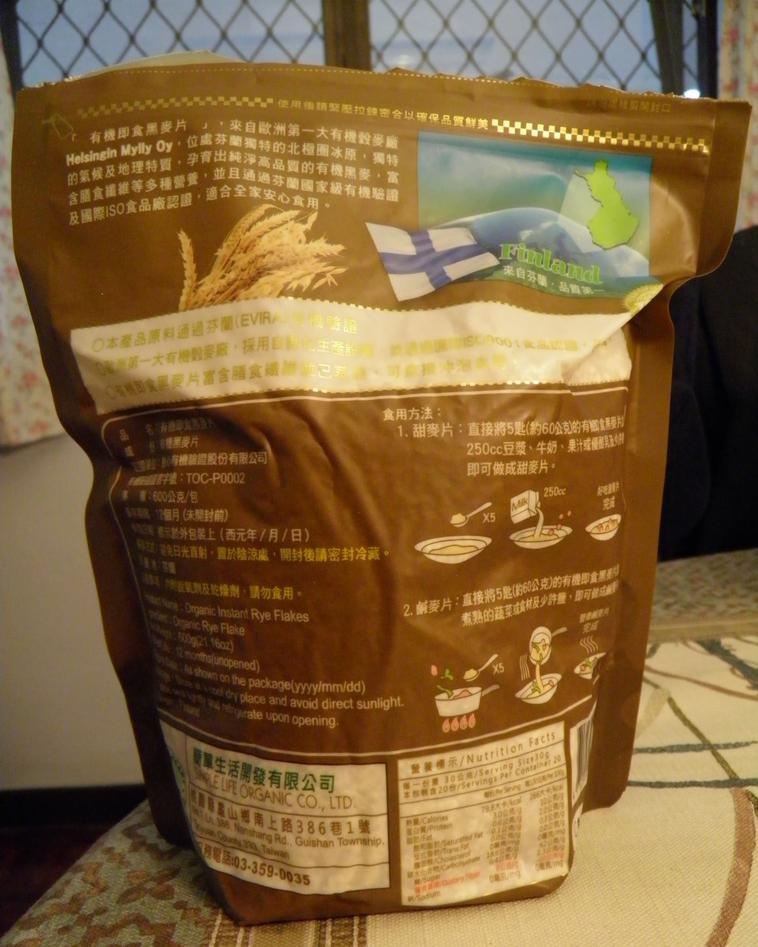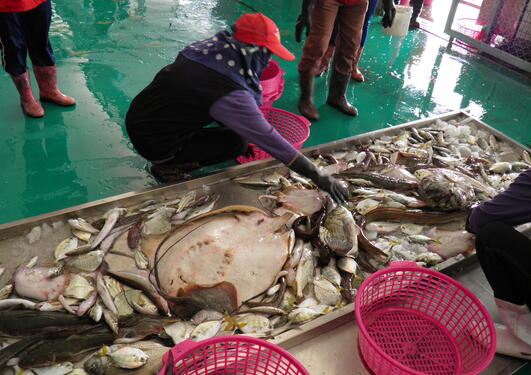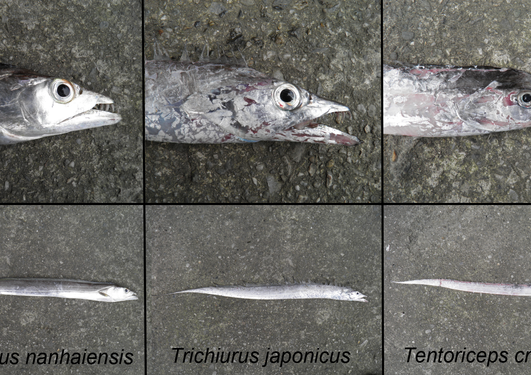Under the banyan tree
My three months in Taipei are now nearing the end. Here are some reflections on life in Taipei.

Main content
Banyan tree is the city tree of Taipei. Indeed, they are prominent on streets and gardens here, including the university campus. The last three months we have been living, if not exactly under banyan trees, then at least in a deep shadow of them. A highlight was that once when having a lunch outdoors, sitting under a small banyan tree (the same one as featuring on the top of this article), something from the tree dropped to my head, then further to the ground. I first thought it was a tree leave, but a second look on the ground revealed that it was a small Japalura lizard (pictured on the right, and an endemic species). Apparently, it had used my head as a stepping stone to get to the ground. These lizards are common, and not shy at all.
Our apartment is surrounded by some big banyan trees that secure that even in sunny days, very little direct sunlight reaches our windows. I guess this is handy in summer when sun is strong and days are hot. In winter, less so. Winter in Taipei has been decidedly mild and not that sunny, and this is how it is supposed to be. It is probably telling that the weather forecast defines temperatures below 10 °C as "extremely cold" and 10–15 °C as "cold". On the other hand, range 21–29 °C is given as "comfortable", and only 30 °C and above as "hot".
Taipei is an easy place for a foreigner to live. One reason is that it is very safe, particularly for its size (the capital area has some 7 million inhabitants). There seems to be little violent crime, but that is perhaps not so unusual for a wealthy country. What is more surprising is the level of trust people show, suggesting that also petty theft is minimal: it is common to see people leave their things unattended in shops, cafes, and restaurants. Bikes have flimsy locks and may also be left unlocked when people peep into a shop (nothing like Amsterdam where even lousiest bikes need to be chained down with two top-grade locks).
It is also easy to cope with coffee addiction. Though traditionally a tea country, it seems easier to get a good cup of coffee than a good cup of tea. Proper coffee machine is a norm in cafes, bars, and restaurants, and there are many. For coffee of a bit lesser standard, 7-Elevens are everywhere. In urban areas, it is never more than 100 meters to the nearest 7-Eleven (or something like 7-Eleven, say Familymart).
Compared to Norway, most things are relatively cheap, in particular eating out. For simple meals, prices in Norway and Taiwan are similar, except that one Norwegian crown buys about four Taiwanese dollars. However, there is one major exception: housing. Housing prices seem to pretty similar to what we have in central Bergen. But at least academic salaries are perhaps half of the Norwegian level, which means that housing costs are much higher in relative terms. However, we were fortunate to get a university guest apartment, which is cheap and close to the campus. And milk is more expensive than in Norway.
What I perhaps like least in Taipei is traffic (probably unavoidable for such big city). The NTU campus is peaceful bike terrain, but it is surrounded by very busy thoroughfares. Motor scooters are very common, adding greatly to noise and pollution. Bike lanes are few, and for crossing the main streets, lots of waiting time is needed. Underground is good but not very dense, and public transport for travel at shorter distances is not so well developed (no trams etc.). There is, however, a well-run system of city bikes (3-speed bikes!), but I imagine that when it gets hot it is difficult to resist the comfort of air-con in cars and underground.
All in all, we have had a great three months in Taipei, learning a lot about culture in Taiwan and of fisheries and ecological research at the National Taiwan University. Many thanks for our friends and colleagues at NTU for making this possible!
Next travel letter will be from Hangzhou, China, where we will spend next three months.
